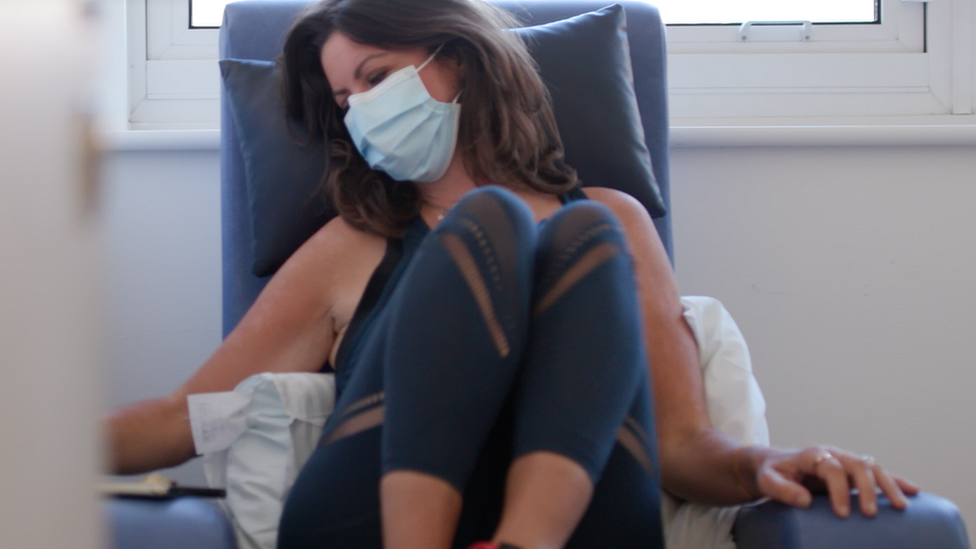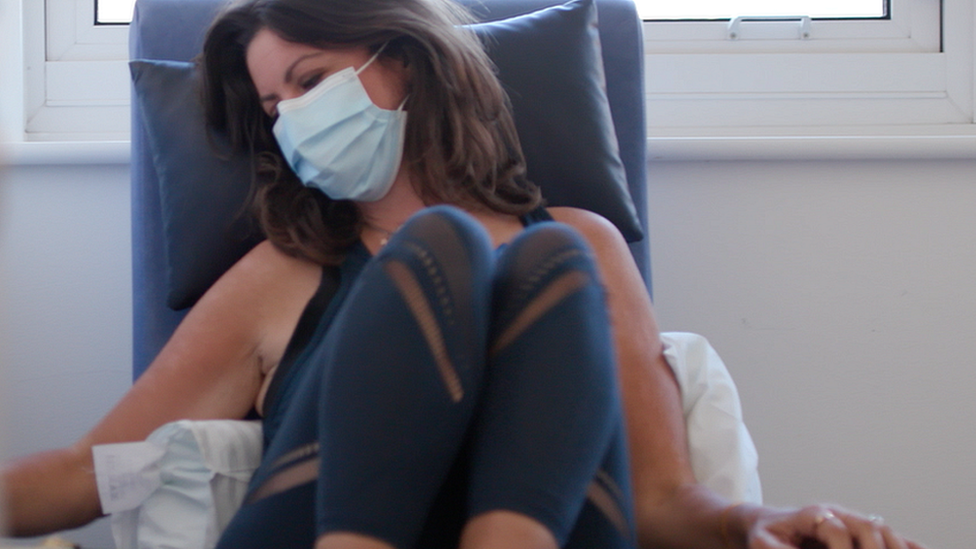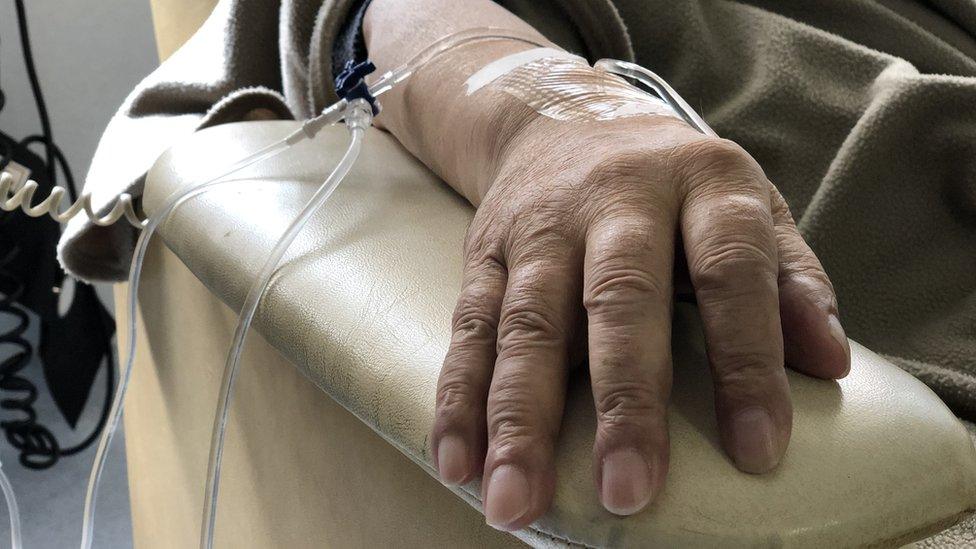Coronavirus could lead to thousands more cancer deaths
- Published
- comments

There could be more than 3,500 avoidable cancer deaths in England in the next five years as a result of the coronavirus pandemic, researchers say.
The virus had disrupted services and some people had avoided healthcare, they told The Lancet Oncology, external journal.
The team looked at the likely impact on four major types of cancer - breast, colorectal, oesophageal and lung.
Early diagnosis and treatment can save lives and anyone who suspects they may have cancer should seek help.
During lockdown, some cancer services were scaled back or delayed, although people were still encouraged to have any essential or urgent care.
UK-wide screening programmes to detect early signs of bowel, breast and cervical cancer in people with no symptoms are now trying to catch up with a backlog of appointments.
If you are invited for a screening appointment, the NHS staff that see you will be following strict guidance on infection control to protect you and themselves against coronavirus.
The study used hospital data on more than 93,000 cancer patients to estimate the effect of delays in cancer diagnosis on survival.
The researchers stress the figures are a prediction of what might happen, rather than what will.
The model assumes that disruptions due to the pandemic will affect access to routine and urgent cancer diagnostic services and alter health-seeking behaviour for a 12-month period.
Other estimates suggest excess deaths from all types of cancer (due to coronavirus delays) could be as high as 35,000 in the UK within a year.
'Fast action'
Other new research in the same edition of The Lancet Oncology, external journal suggests delays in diagnosis and treatment of two months could lead to a substantial proportion of patients with early-stage tumours progressing from having curable to incurable disease.
Study leader Prof Clare Turnbull, from The Institute of Cancer Research, London, said taking fast action now could still turn things around.
"Prioritisation of particular patient groups may be effective in mitigating the extent of excess deaths and lost life years," she said.
Michelle Mitchell, from Cancer Research UK, said: "It's not easy to pin down the exact number of additional cancer deaths we expect to see over the coming years.
'Feel reassured'
"But studies like this help us to understand the devastating long-term effect a pandemic like Covid-19 will have on the lives of thousands of cancer patients.
"People should feel reassured that it's safe to use our health services again.
"If you have any concerns, please do contact your GP or specialist cancer team for more information."
The government must work closely with the NHS to ensure it has sufficient staff and equipment to clear the backlog and deliver prompt care, she added.
Health Secretary Matt Hancock said the NHS was getting services back up and running as fast as possible and that during the peak some services had be stopped for clinical reasons.
NHS figures, external show that 106,535 urgent cancer referrals were made by GPs in England in May 2020, down from 200,599 in May 2019 - a fall of 47%.
At the same time, 55,500 more people are now waiting to have key cancer tests, external in England's hospitals compared with the same point last year.

INSIDE HEALTH: Why is there an elevated risk from Covid-19 for some groups in society?
DIET AND MENTAL WELLBEING: Does the food you eat help or hinder you emotionally...
- Published6 July 2020

- Published11 June 2020

- Published1 June 2020
